Why Entrepreneurship Might Save Our Kids—and the Rest of Us.
Key Points
-
We need to be asking our students “How did you put your ideas into the world today?”.
-
To be human is to be entrepreneurial.
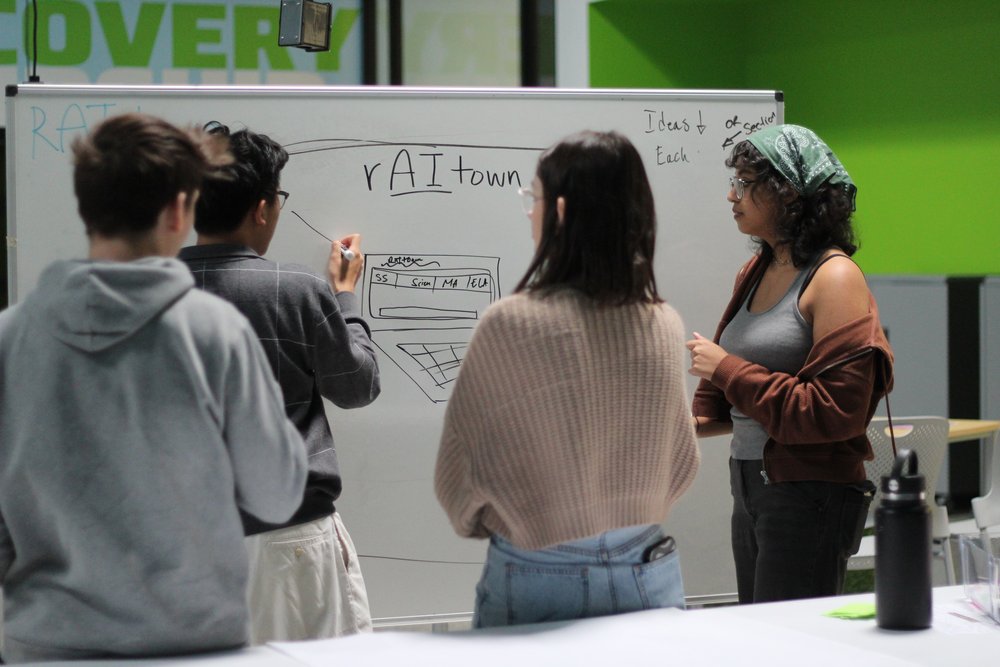
By: Katie Kimbrell
One of my favorite mom friends asks her young school-aged kids every day, “What did you make today?”
I love how subtly subversive this question is. Not, “How was school today?” “Were you good today?” or, “How’s [insert school subject] going?” But, “How did you put your ideas out into the world today?”
That simple question understands this fundamental truth: to be human is to create, to employ our imaginations and partake in forming the world we want to live in. Our institutions have forgotten this basic truth, though—schools, especially.
My oldest daughter Maeve is in first grade. I’m not sure what your impression or memory of first grade is, but I’m experiencing it like an academic boot camp for six-year-olds. You must immediately learn to: read, write, add, subtract, tie your shoes, memorize your facts, memorize your patriotic songs, and organize your things, and you need to do it all now. No time to waste. Maeve starts and ends most days with a sort of glaze over her eyes that I most certainly project as my own reaction to her extremely rigid daily schedule of keeping up with the skill/drill.
Last week, I finally saw the lately-rare spark in her eyes when I picked her up from after-school art class. She had created glittered ceramic donuts, along with a wooden donut stand, and had designed a donut menu. I immediately was solicited by the tiny CEO, who informed me her donuts ranged from $100-$800 and I would need to pay her.
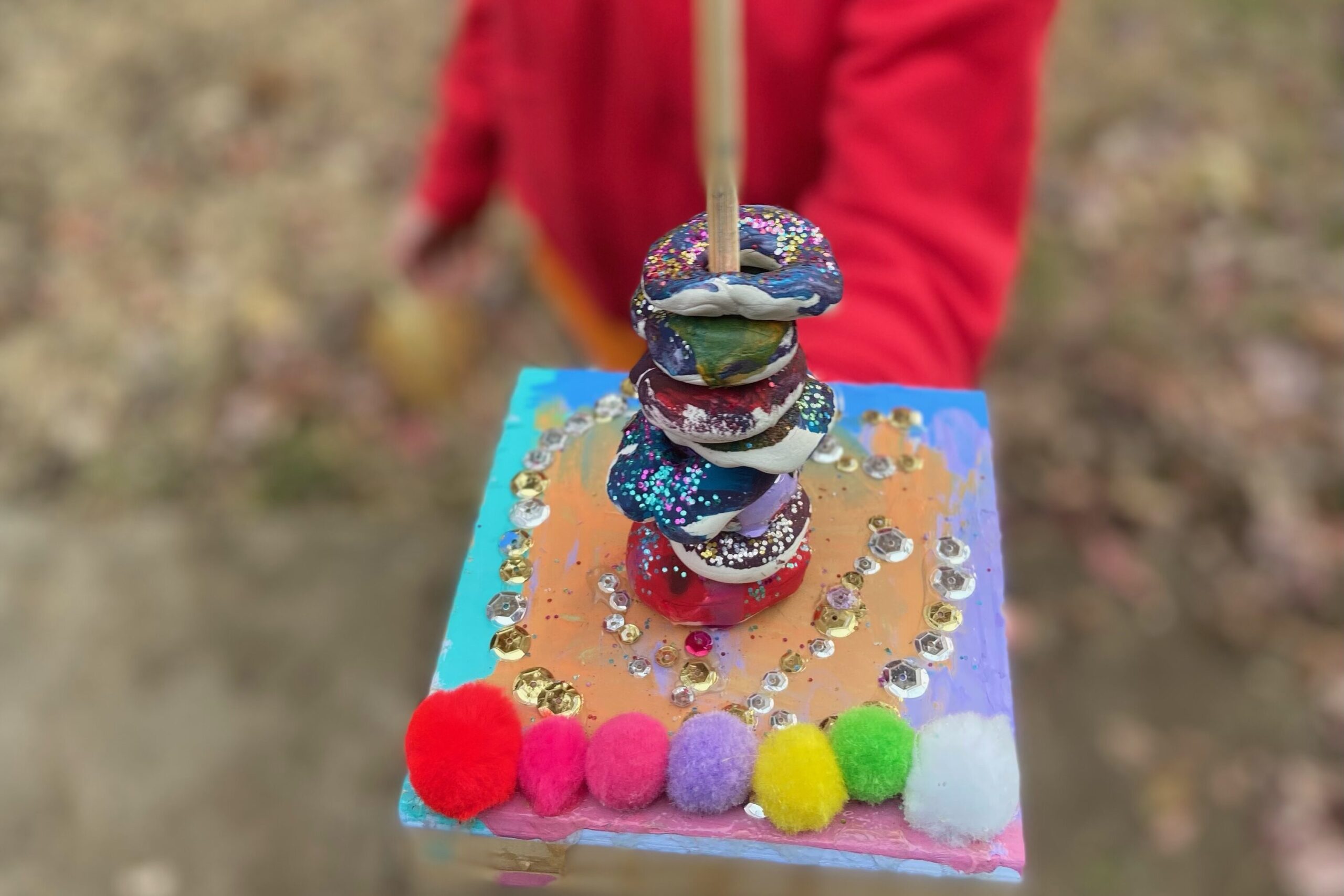
To be human is to create, to put your ideas out into the world. Think of the last thing you were deeply invested in, and tell me it was not related to your own idea or problem you were passionate about. To solve problems and work on our own ideas is generally what, at the most basic level, makes any of us really give a damn at the end of the day, young and old alike. It’s the spark in all of our eyes, a sense of purpose and inspiration we could all use a hefty dose more of—kids in schools, especially.
In my role and in my circles, I often partake in big-picture, philosophical discussions about education. Different flavors of the same conversation: our schools and communities are in crisis, educators are overwhelmed and in shortage, children/youth are ‘failing’, they’re unmotivated and struggling with mental health, and/or they’re so disconnected from the real world and inadequately prepared for the future—and what are we going to do about it all?
I don’t have simple answers for public education, but here is what I do know. My years as a high school teacher taught me this very unlikely lesson for a traditional English teacher: to be human is to be entrepreneurial. Students crave opportunities to be active participants, creators, and solutionaries in real-world problems, and the essence of these opportunities is the essence of entrepreneurship.
To Be Human is to Be Entrepreneurial
I learned this lesson most clearly from my own students, who by the time they were in high school, were exhausted from playing the game of school. Many who struggled to get through, but who came out of the woodwork and shined when the work and task of school shifted—when they were asked to launch real solutions to real problems they experienced every day. Students who I discovered were running successful businesses with their parents outside of school and who thrived when we no longer focused only on their deficits and skills gaps. Students who, in spite of – not because of – school, have gone on to open flower shops, body shops, cosmetic product companies. Students who have built new roles or departments within companies. And like the students we work with at Startland, who have launched viable, sustainable solutions to the community’s greatest needs that affect them—on topics they’re passionate about like immigration, environmental protection, racial equity, and women’s rights—many while still in high school.
To be human is to be entrepreneurial because to be entrepreneurial is to put your ideas and solutions into the world. To be entrepreneurial is to discover purpose, passion, and identity in this life. To be entrepreneurial is to be a shapeshifter with the fast-changing world, ready to meet the demands and challenges we can’t currently imagine. To be entrepreneurial is to build on your life experiences and bring innate value into situations, not deficits—which means being entrepreneurial is a path toward equity. Being entrepreneurial means you take on the world’s problems with confidence, curiosity, and persistence. It means you create opportunity for yourself and others, including economic opportunity and generational wealth. It means you negotiate your ideas with others, manage audacious goals with others, and gain empathy for others. Being entrepreneurial means becoming a leader.
Read that again and tell me it’s not what our children—and world—need now more than ever. And let me be clear— all kids, not just those deemed ready, capable, on grade level, or gifted.
To be human is to be entrepreneurial, and when we leave entrepreneurship out of schools, or gatekeep these experiences for the elite few inside schools, we leave authentic learning and human development out of schools. Full stop.
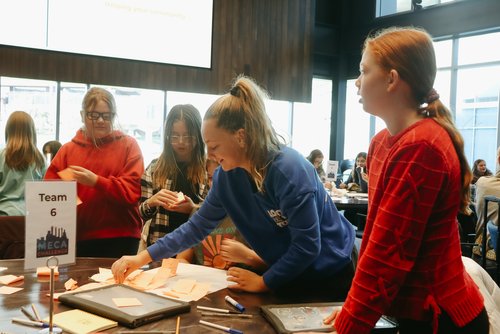
It’s hard to get behind entrepreneurship as educators and as a community. It’s high-risk and often misunderstood. If implemented, entrepreneurship is usually pigeon-holed in business classes or extracurricular clubs rather than scaled across the curriculum for all kids. It’s uncomfortable, to say the least, for most educators, who’ve themselves generally emerged from traditional teacher preparation programs. Philanthropists and policymakers haven’t figured out how to prioritize and invest in K-12 entrepreneurial experiences in a meaningful way. The ROI is not quick. It’s generational.
At the same time, the role of entrepreneurship in personal and community economic development is well-researched. If you want to create and compound opportunity in communities, you invest in entrepreneurship.
Entrepreneurship is Misunderstood and Misapplied
The disconnect I’ve observed is who is having those conversations (economic development professionals) and whom they are having those conversations about (small business owners and startup founders). This trend is shortsighted and siloed. We need to have these discussions about our community’s schools and children, and we need to be having them at every level, as parents, educators, policymakers, funders, and economic development experts—and with the same seriousness and intensity that we discuss and measure reading, writing, and math.
We can invest in closing critical gaps in literacy and math, but if we aren’t also investing in closing gaps in entrepreneurial opportunity for children at every level, we are widening well-researched opportunity gaps and removing the spark from the eyes of children at every level.
To be human is to be entrepreneurial, and this innate entrepreneurialism should begin to be nurtured at the same time kids are learning to read, tie their shoes, and sell $800 make-believe ceramic donuts. These are the generations whose huge hearts and imaginations will be soon tasked—in a more complex and conflict-ridden world than ever before—with creating opportunity for themselves, their communities, and leading us all.
Katie Kimbrell is the Director of Startland Education, a program of Startland, a 501(c)3 nonprofit. At Startland Education, our mission is to bring human-centered design thinking to classrooms in order to create communities that value our youth and inspire them as future change leaders and entrepreneurs. To learn how Startland Education can equip and empower educators in design thinking at your school, visit startlandedu.org.



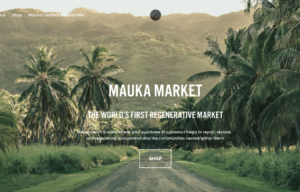

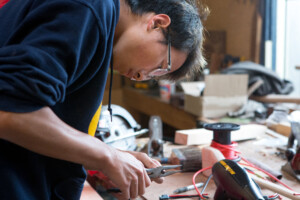
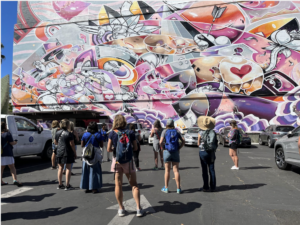
0 Comments
Leave a Comment
Your email address will not be published. All fields are required.